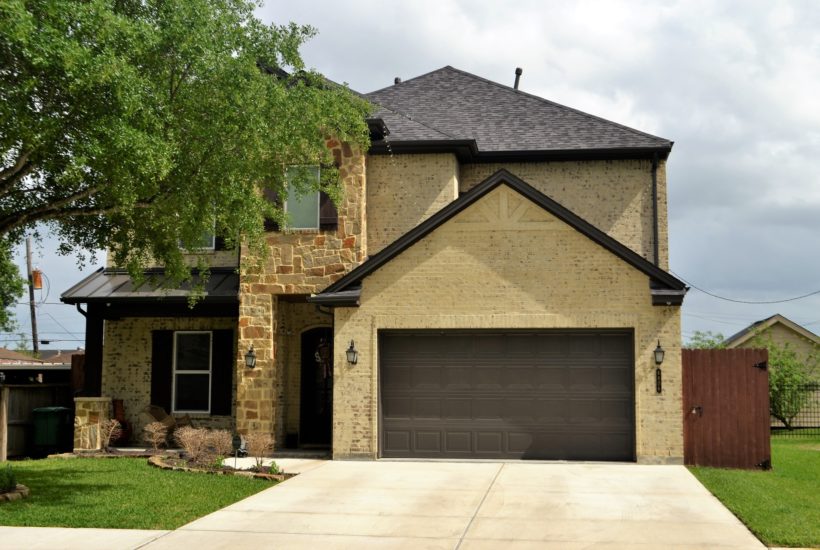Crowdfunding
Rental real estate seen as a safe haven in France
The crowdfunding platform My Korner Shop has an original model of crowdfunding, investing in rental real estate, in this case commercial real estate, which is more resilient to the economic crisis than other models. The foreseeable temporary drop in yields should not worry investors: higher risk is the logical counterpart of higher than average returns. Rental real estate is seen as a safe haven.

The health crisis is obviously having an impact on the economy, and the real estate sector is not immune to the current difficulties. As far as crowdfunding platforms are concerned, it should be noted that not all are suffering from the crisis in the same way.
Many other publications overlook breaking business headlines focused on investing or other business strategies. Born2Invest mobile app helps readers stay on top of the latest news and financial affairs of the world.
The “classic” crowdfunding model is more impacted
The traditional platforms, which offer financing for real estate development operations, the capital of commercial companies or loans to companies, are suffering more severely from the economic situation.
Regarding corporate equity financing or corporate loans, the downturn in business due to the crisis will disrupt the return on investment, through delayed repayments or even non-repayment in the event of bankruptcy of the company financed.
With regards to the financing of real estate development operations, many projects have already come to a halt and the risk of seeing operations frozen or canceled has increased. In turn, this may lead to delays in the repayment of investments by investors or even the impossibility of the operator to pay interest.
The innovative model for financing a rental property
In comparison, an investment based on an existing real estate asset is more solid. Indeed, the intrinsic value of the property may vary, but this will remain under control. For the time being, market forecasts do not foresee a drastic fall in the value of real estate in France.
If there should be a fall, the medium/long term strategy of the investment (5 to 10 years) will allow to limit the loss; any fall is traditionally followed by a rise. At worst, the duration of the operation can always be extended in order to resell the property assets at the right time, without being forced to resell in a context of temporary price falls.
The My Korner Shop platform is ready for temporary upheavals
At My Korner Shop, current operations are based on commercial real estate. The current risks concerning the operations are therefore the following: a temporary loss of profitability due to the authorization for certain companies (derogation granted by the public authorities) not to pay their rents during the period of confinement, and bankruptcy of the tenant retailer, which would lead to a longer suspension of rent payments.
In any event, risks are relatively controlled
The main risk associated with a cessation of rent collection is the reduction in the cash flow of the operation when loan repayments have to be honored. However, the government has put in place the possibility of deferring these loan repayments during the period of non-payment of rents. This at least makes it possible not to end up with negative cash flow from operations, even if the situation persists over time.
In reality, one of the major problems of real estate crowdfunding is that, at the moment, the main selection criterion for investors remains profitability. The investment is considered attractive when the latter is close to 10%, profitability generally honored in real estate development financing projects. In comparison, rental real estate generally serves returns of around 5%. For example, real estate managed by institutional investors (SCPI, for example) served an average profitability of 4.51% in 2019, according to France SCPI.
This selection criterion will have to be put into perspective. In terms of investment, the rule is, in fact, clear from the outset: the lower the risk, the lower the return, and vice versa. In other words, a return of 10% necessarily implies a higher-than-average risk. Investors need to be aware of this, and the current crisis is a case in point. It is therefore “normal” that crowdfunding, which is very well remunerated most of the time, is subject to a temporary drop in its yield in the event of a contingency.
Rental real estate is and will remain a historic safe haven in France (the impact of the crisis is less than for securities) and savers have no reason to distance themselves from it. Better still, some of them should return to it to benefit from a minimum of security.
__
(Featured image by ArtisticOperations via Pixabay)
DISCLAIMER: This article was written by a third party contributor and does not reflect the opinion of Born2Invest, its management, staff or its associates. Please review our disclaimer for more information.
This article may include forward-looking statements. These forward-looking statements generally are identified by the words “believe,” “project,” “estimate,” “become,” “plan,” “will,” and similar expressions. These forward-looking statements involve known and unknown risks as well as uncertainties, including those discussed in the following cautionary statements and elsewhere in this article and on this site. Although the Company may believe that its expectations are based on reasonable assumptions, the actual results that the Company may achieve may differ materially from any forward-looking statements, which reflect the opinions of the management of the Company only as of the date hereof. Additionally, please make sure to read these important disclosures.
First published in IMMOWEEK, a third-party contributor translated and adapted the article from the original. In case of discrepancy, the original will prevail.
Although we made reasonable efforts to provide accurate translations, some parts may be incorrect. Born2Invest assumes no responsibility for errors, omissions or ambiguities in the translations provided on this website. Any person or entity relying on translated content does so at their own risk. Born2Invest is not responsible for losses caused by such reliance on the accuracy or reliability of translated information. If you wish to report an error or inaccuracy in the translation, we encourage you to contact us.

-

 Crypto5 days ago
Crypto5 days agoEthereum Pushes AI Integration With ERC-8004 and Vision for Autonomous Agents
-

 Biotech2 weeks ago
Biotech2 weeks agoByBug Turns Insect Larvae into Low-Cost Biofactories for Animal Health
-

 Business11 hours ago
Business11 hours agoDow Jones Near Record Highs Amid Bullish Momentum and Bearish Long-Term Fears
-

 Business1 week ago
Business1 week agoDow Jones Breaks 50,000 as Bull Market Surges Amid Caution and Volatility
























